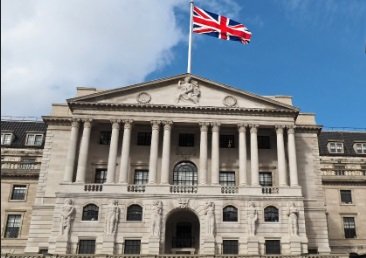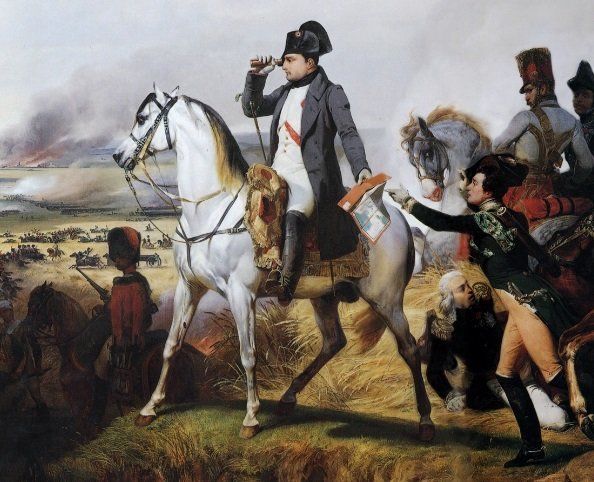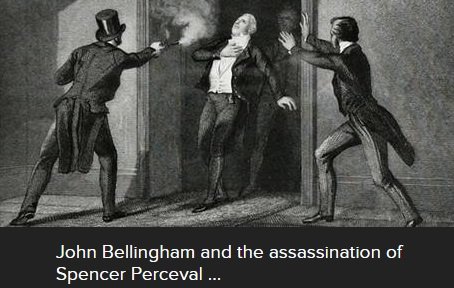The need for a privately owned central bank in England was initially proposed - by an ex- pirate!

William Paterson wrote a pamphlet in 1693 entitled 'A Brief Account of the Intended Bank of England'.
He boasted that this Bank 'hath the benefit of interest on all
moneys which it creates out of nothing.'
(sound familiar?)
The ostensible purpose of the bank, was to lend King William unlimited sums of money at 8% per annum, with which to finance his wars, in particular with the conflict against Louis XIV of France.
(France was not in the 'usury system' at that time).
Thus, the Bank would thus receive (from the Crown) interest of £100,000 per annum. (with an additional £4,000 being an
administrative fee).
The Bank could also issue £1,200,000 in bank notes - without any gold cover.
Not only that, but this 'fake money' was to be accompanied by a mechanism of compounding interest.
The Bank's rules and regulations, upon it's formation, were carefully scrutinized by one Creswell Levinz.
This was not some altruistic endeavor to look after the peoples of England's interests, but rather to ensure that the Bank
could continue with its purpose...
To fleece the English peoples - in perpetuity - by giving the central bank the power of the creation of the nation’s money.
There was a lot opposition to the establishment of the Bank, many of which were the goldsmiths and moneylenders - who correctly foresaw that it would bring an end to their own usurious practices.
Landowners and gentry also express their concerns , as they feared an escalation in interest rates.
'The Bank' would now control the nation’s money supply after all,and with it, interest rates.
The biggest fear was that “the Bank would grow too powerful and would then become the keystone of the commercial world._”
And this is exactly what happened of course.

The Bank of England became the model on which all subsequent central banks were replicated.
The bill for allowing this was debated in July 1694. (and, 'coincidentally' at the high point in summer when most of the rural members of parliament were engaged in summer pursuits and harvesting of their crops).
(sound familiar to the formation of the federal reserve?)
On Friday, 27 July 1694 - when the Charter of Incorporation was granted - only 42 members were present - out of 514 members of parliament....
The title of the bill made no mention of the proposed Bank of England.
It was actually only described two-thirds down the paper, in unintelligible verbiage - to the layman.
...The third sentence, which contains 242 words starts:
“Whereas in and by a certain Act lately made in Parliament entitled an Act for granting to Their Majesties several rates and duties upon TONNAGE OF SHIPS AND VESSELS, and upon beer, ale, and other liquors, for securing certain recompenses and advantages in the said Act mentioned, to such persons as shall voluntarily advance the sum of fifteen hundred thousand pounds towards carrying on the war with France it is amongst other things enacted……”
The gist of the first two-thirds of the bill details the necessity to levy a complicated array of new rates,duties and taxes on ships,beer, ale and other liquors.
The real purpose of these taxes, was that they were needed in order to fund the interest on all future government loans.
Shortly afterwards further taxes were introduced - including a land tax, paper tax, poll tax, salt tax, stamp tax and 'window tax'.
Other taxes also initiated - a tax on pedlars, a tax on
hackney coaches (modern day taxi cabs), a tax on births, marriages and deaths - They even had a 'bachelors tax'!
The most punitive tax of them all that was introduced was an income tax.
This was levied at a rate of 20% and applied to all companies, and laborers.
War and Debt Slavery - in Perpetuity....
From the establishment of the Bank of England, a pattern would emerge.
Unnecessary wars would be embarked upon - which simultaneously increased the national debt and the profits of the usurers.
(The 'Military Industrial Complex' is nothing new).
Significantly, most of these wars were started against countries that had implemented interest-free state banking systems.
(the North American colonies and also France under Napoleon, for example).
This pattern of attacking countries -and enforcing the bankers systems of usury - has been continuously deployed, right up until the present day.
...including the defeats of Russia in World War I, Germany, Italy and Japan in World War II - and most recently Libya in 2011.
These were all countries which had state banking systems.
Within two years of its establishment (1696), the Bank of England had £1,750,000 worth of bank notes circulating with a gold reserve of only 2%.
By 1720 - after the conclusion of the War of the Spanish Succession (1701- 14) the national debt had risen to over £30 million.
After the American War of Independence (1775-83), the national debt soared to £176 million.
In 1786 Prime Minister William Pitt the Younger tried to abolish the national debt, but was this scheme was soon abandoned.
Why?

Because of the enormous increase in loans that were incurred - so as to finance the war against Napoleon!
In 1797 - in order to pay for the increasing interest burden - a system of graduated income tax had to be introduced.
The war against France lasted from 1792 until 1815.
The principal objective of this conflict was not to defeat Napoleon - but to destroy Napoleon's 'debt and interest-free' banking system of finance, in France - right in the heart of Europe.
England also waged a war against the United States - from 1812 until 1814.
This war (as was the case with the war against France), was instigated by England at the behest of a certain banker, named Mayer Amschel Rothschild....
This came straight after the United States Congress refused to renew the charter of the Rothschild controlled Bank of the United States - which was the central bank of America from 1791 until 1811.
British Prime Minister Spencer Perceval (1809-12) tried to stop this 'bankers war', but guess what?
He was assassinated on 11 May 1812 in the lobby of the House of Commons by one John Bellingham.
(The strategies of the central bankers stays the same throughout the ages...)

By 1815 the national debt had ballooned to £885 million. The wars resulted in approximately three million military personnel - and at least one million civilians - losing their lives.
In order to destroy Napoleon's state bank, it cost the British public a £831 million - of which £2.5 billions was still outstanding - in 1914....100 years later!
How so ????
The principal of £504 million had, over the intervening years increased multiple times - all as a result of the compounding effect of interest.
Parliamentarian William Cobbett (1763-1835) perceived what was afoot in this 'new' system, and wrote as follows:
“I set to read the Act of Parliament by which the Bank of England was created. The investors knew what they were about. Their design was to mortgage by degrees the whole country…lands…houses…property…labor.
The scheme has produced what the world never saw before -starvation in the midst of abundance.”
Part 7
WW I - and beyond....

Wow! Very interesting and informative! The crown taxed everyone just to pay the interest on the loans they took! Today most of us just go along with this nonsense. That must stop. Thank you for putting this together.
Downvoting a post can decrease pending rewards and make it less visible. Common reasons:
Submit
You're welcome - most people do not understand the history of why we are, where we are...
Downvoting a post can decrease pending rewards and make it less visible. Common reasons:
Submit
I now see you have a whole series published. Will have to read more of them.
Downvoting a post can decrease pending rewards and make it less visible. Common reasons:
Submit